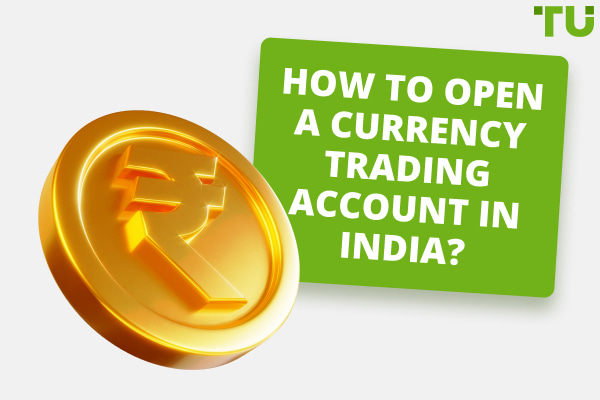How to trade currency in India?
Currency trading in India is primarily done through the NSE (National Stock Exchange) and the BSE (Bombay Stock Exchange). However, the scope of currency market in India is relatively limited given how closely it is regulated by the Reserve Bank of India (RBI) and the Securities and Exchange Board of India (SEBI).
Trading currency in India involves buying and selling permissible foreign currencies to profit from exchange rate fluctuations. Although highly restricted, the Indian currency market does allow for currency trading activities if done within the scope of the regulatory framework. In this article, the experts at TU will discuss the legality of Forex trading in India along with the steps to get started with the same. Further, they will also shed light upon the regulatory framework governing Forex trading in India. By the end, readers are expected to gain insights into the essentials of currency trading in the Indian market, ensuring they navigate this financial landscape within the bounds of the law.
What is currency trading?
Currency trading involves buying and selling Forex pairs to make a profit. It's like trading one currency against another to benefit from their price movements. Traders in India do this online through special trading platforms or with the help of authorized brokers. The main goal is to make money by predicting the relative appreciation of depreciation of one currency compared to another. For example, if you think the US Dollar will get stronger against the Indian Rupee, you might exchange your INR for USD. Later, when the USD is worth more in INR, you exchange it back, making a profit.
In India, the currency market is regulated by the Reserve Bank of India (RBI) and the Securities and Exchange Board of India (SEBI) with an aim to protect the interests of market participants and maintain the financial stability of the Indian rupee (INR) in the international market.
For traders looking to venture into Forex trading, it is important to note that exchange rates can be unpredictable, and losses are possible. So, traders must strive to use strategies that minimize these risks.
Rules and Regulation
Licensing in India
In India, brokers are regulated by the Reserve Bank of India (RBI) and the Securities and Exchange Board of India (SEBI). The former supervises foreign currency and the latter controls the stock market. The conditions for obtaining a license are: sufficient capital, a detailed business plan, compliance with rules and regulations, professional qualifications of key employees, and a professional reputation of the applicant.
Investor protection in India
To resolve disputes, traders can approach the RBI and SEBI that prevent fraud and dishonest activity in the securities market.
Taxation in India
Traders in India are subject to two primary types of taxes: direct and indirect. Direct taxes include a 5%-30% income tax. Capital gains tax is 15% for short-term profits and 10% for long-term ones. Trading income under 2.5 lakhs of Indian rupees is not taxable.
Key facts about the Indian currency market
Regulation of the Indian currency market
The Indian currency market plays a vital role in the Indian economy. It is primarily regulated by the Reserve Bank of India (RBI), which is entrusted with the responsibility of formulating and implementing monetary policies to ensure stability in the currency market. The RBI's role is vital in maintaining the value of the Indian Rupee (INR) and safeguarding the country's economic interests.
Permissible currency pairs for trading
The market primarily revolves around major currency pairs that involve the INR. The most frequently traded pairs include USD/INR (U.S. Dollar/Indian Rupee), EUR/INR (Euro/Indian Rupee), and GBP/INR (British Pound/Indian Rupee). These pairs reflect the exchange rates of these significant global currencies against the INR. The other four currency pairs allowed for trading are JPY/INR, EUR/USD, GBP/USD, and USD/JPY.
Trading hours
The Indian currency market operates in two overlapping sessions. The interbank market functions from 9:00 AM to 5:00 PM (Indian Standard Time), serving as the core trading period for financial institutions as well as retail traders. Trades involving the Indian Rupee (INR) can take place during this session. The second session, that is from 9:00 AM to 7:30 PM IST, allows for cross-currency Forex pairs trading.
Diverse participants in the market
The Indian currency market is an emerging hub with a wide array of participants. These include commercial banks, foreign exchange brokers, corporations engaged in international trade, and retail traders. Each group contributes to the market's liquidity by buying, selling, and exchanging various currencies, making it a dynamic ecosystem.
Determinants of Exchange rates
Exchange rates within the Indian currency market are primarily influenced by market forces of supply and demand. Other factors impacting currency values include interest rates, inflation, trade balances, and geopolitical events. These variables constantly interact to determine the rates at which the INR can be exchanged.
Currency controls and reserves
To manage foreign exchange reserves and stabilize the rupee, India has imposed various currency controls and restrictions over time. These measures encompass limits on Forex transactions for both residents and non-residents. Additionally, the RBI actively manages substantial foreign exchange reserves to minimize exchange rate volatility and ensure economic stability.
Significance for trade
Being a developing nation, a stable and competitive exchange rate is critical for India's international trade. A weaker rupee can boost exports by making Indian goods more affordable abroad but may increase the cost of imported goods. Conversely, a stronger rupee can make imports cheaper but might make Indian exports more expensive.
Speculation and investment
The Indian currency market is not only a hub for businesses and traders but also attracts speculators and investors. Many individuals engage in Forex trading to profit from exchange rate fluctuations. Additionally, online trading platforms have made Forex trading more accessible to retail investors, contributing to its popularity.
Currency derivatives
The market also offers currency derivatives, such as futures and options, enabling participants to hedge against currency risk. These instruments are traded on recognized stock exchanges like the National Stock Exchange (NSE) and the Bombay Stock Exchange (BSE), providing risk management tools for businesses and investors.
Challenges and economic stability
The Indian currency market faces challenges related to currency volatility, global economic factors, and geopolitical events. From the viewpoint of regulators, effectively managing these challenges is essential for maintaining economic stability and safeguarding India's financial interests on the global stage.
In essence, the Indian currency market is a dynamic ecosystem regulated by the RBI, involving diverse participants and major currency pairs. Exchange rates are determined by supply and demand dynamics, and currency controls and reserves are in place to ensure stability. It plays a pivotal role in India's international trade and attracts various participants, including investors and speculators, while facing ongoing challenges that require prudent management.
How to invest in currency in India
Investing or trading in currency within India is possible through several channels. However, it's vital to grasp the associated risks and emphasize the need for a solid strategy. Experts suggest the following steps for aspiring traders / investors in India:
Educate yourself
Start by learning about the currency market, how it works, and the factors that affect exchange rates. You can find many online resources, books, and courses to help you understand Forex trading. Make sure to be well-versed with the dynamics of permissible Forex pairs in India.
Choose a reputable broker
Pick a licensed and authorized Forex broker in India. Make sure they follow the regulations set by the Reserve Bank of India (RBI) and the Securities and Exchange Board of India (SEBI). Check their fees, spreads, and available currency pairs.
Open a trading account
Once you've selected the broker, open a trading account. You'll need to provide basic identification and financial information. Do note that having a Permanent Account Number (PAN) is mandatory for Forex trading in India.
Develop a trading strategy
Decide how you want to trade. Will you be a day trader, swing trader, or long-term investor? Create a strategy based on technical analysis, fundamental analysis, or a mix of both.
Practice with a demo account
Many brokers offer demo accounts where you can practice trading with virtual money. This is a safe way to gain experience without risking real capital.
Fund your account
Deposit money into your trading account. Start cautiously with an amount you can afford to lose.
Initiate trading
Use your chosen strategy to make trades. Keep an eye on the market, set stop-loss orders to limit potential losses, and take-profit orders to secure profits.
Manage risk
Implement risk management tactics such as establishing a risk-to-reward ratio, and avoid investing more than a specific percentage of your trading capital in a single trade.
Stay informed
Stay updated on economic news, global events, and developments that could influence exchange rates.
Evaluate and adapt
Regularly assess your trading performance and adapt your strategy when necessary. Learning from both successes and losses is a vital aspect of trading.
Best time to trade Forex in India
According to experts, the best time to trade Forex is during the overlap of the major international Forex markets. The following table summarizes the key overlapping times traders often look out for:
| Markets | Overlap Time Range (GMT) | Corresponding Indian Standard Time (IST) |
|---|---|---|
London Stock Exchange (LSE) and New York Stock Exchange (NYSE) | 12.00 p.m. to 4.00 p.m. | 5.30 p.m. to 9.30 p.m. |
Tokyo Stock Exchange (TSE) and London Stock Exchange (LSE) | 7.00 a.m. to 9.00 a.m. | 12.30 p.m. to 1.30 p.m. |
Indian Stock Exchange and London Stock Exchange | 7.00 a.m. to 11.30 a.m. | 12.30 p.m. to 5.00 p.m. |
So, experts advise traders interested in rupee trading to pay attention to the overlap between the Indian market and the London market. During this overlap, which occurs from 7.00 a.m. to 11.30 a.m. GMT (12.30 p.m. to 5.00 p.m. IST), traders can benefit from both important news affecting the Indian market and increased liquidity due to the London trading session. Conversely, for traders specifically dealing with currency pairs linked to the US Dollar, like EUR/USD, GBP/USD, and USD/JPY, the most favorable time to engage in Forex trading in India is typically between 5:30 PM IST and 7:30 PM IST. During this period, there is an overlap between the European and US market sessions, and cross-currency Forex pairs trading is permissible, leading to the highest levels of market liquidity and trading volume.
Do note that it's important to track any changes in market timings due to daylight saving policies, as these can affect the timing of these overlaps throughout the year.
Best currency pairs to trade in India
According to experts, the best currency pairs to trade in India are:
USD/INR
This is the most actively traded currency pair involving the Indian Rupee, ensuring high liquidity and suitability for trading during Indian hours.
EUR/USD
As one of the major global currency pairs, EUR/USD offers abundant trading opportunities due to its excellent liquidity and narrow spreads.
GBP/USD
Referred to as the "Cable", GBP/USD is known for its high volatility and presents numerous trading possibilities, especially during the London trading session.
USD/JPY
USD/JPY pair boasts high liquidity, representing two of the world's largest economies. It frequently follows distinct trends in price fluctuations.
AUD/USD
Known as the "Aussie", AUD/USD is notably active during the Asian trading session but can still offer profitable opportunities during Indian trading hours.
Summary
Currency trading in India is regulated by the Reserve Bank of India (RBI) and the Securities and Exchange Board of India (SEBI). Trading Forex is legal in India if you follow the rules set by the regulators. Taxes on profits and reporting large transactions are essential considerations. To trade currency in India, you should educate yourself about the Forex market, choose a regulated broker, open a trading account, develop a trading strategy, and practice with a demo account. It's also essential to manage risks, stay informed about economic news, and adapt your strategy as needed.
The best time to trade Forex in India is during the overlap of the Indian market with the London market, typically from 12:30 p.m. to 5:00 p.m. IST. This period offers increased liquidity and access to important news affecting the Indian market. Further, the Indian currency market involves various participants, including banks, traders, and investors. Major currency pairs like USD/INR, EUR/INR, and GBP/INR are actively traded. Exchange rates are influenced by supply and demand, economic factors, and geopolitical events. Currency controls and reserves are in place to ensure stability, and the market also offers currency derivatives for risk management. Overall, Forex trading in India presents opportunities for investors but requires careful understanding of the market and adherence to regulations.
FAQs
How is currency trading done in India?
Currency trading in India is commonly conducted through three avenues: the spot market, the forward market, and the futures market. In the Indian context, the National Stock Exchange (NSE), Bombay Stock Exchange (BSE), and Multi Commodity Exchange Stock Exchange (MCX) serve as the primary platforms for currency market transactions.
What factors affect currency exchange rate in India?
The Indian Rupee (INR) is subject to the influence of various factors, including the nation's economic performance, current events, and market sentiment.
Can I trade Forex in India?
In the Indian currency market, traders have access to a limited range of currency pairs through the National Stock Exchange (NSE) and the Bombay Stock Exchange (BSE). The regulators RBI and SEBI keep a close watch on Forex trading activities in the country given the sensitive and systemically important nature of foreign currency transactions for developing nations such as India.
What is currency trading & how does it work?
Currency trading provides traders with a platform to speculate on the relative value of one currency against another. It serves as an attractive option for investors seeking portfolio diversification and opportunities to capitalize on global economic trends. In essence, the currency market entails the buying and selling of currency pairs from various countries, allowing traders to take advantage of fluctuations in exchange rates for potential profit.
Team that worked on the article
Chinmay Soni is a financial analyst with more than 5 years of experience in working with stocks, Forex, derivatives, and other assets. As a founder of a boutique research firm and an active researcher, he covers various industries and fields, providing insights backed by statistical data. He is also an educator in the field of finance and technology.
As an author for Traders Union, he contributes his deep analytical insights on various topics, taking into account various aspects.
Dr. BJ Johnson is a PhD in English Language and an editor with over 15 years of experience. He earned his degree in English Language in the U.S and the UK. In 2020, Dr. Johnson joined the Traders Union team. Since then, he has created over 100 exclusive articles and edited over 300 articles of other authors.
Mirjan Hipolito is a journalist and news editor at Traders Union. She is an expert crypto writer with five years of experience in the financial markets. Her specialties are daily market news, price predictions, and Initial Coin Offerings (ICO).











